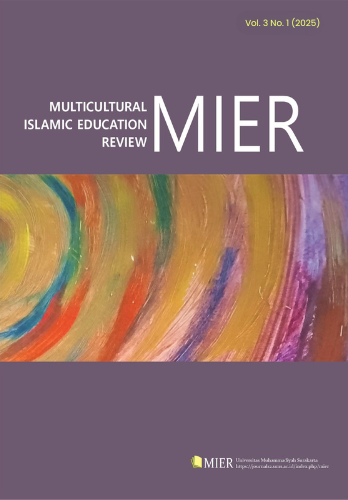Empowering Muslim Adolescents through Progressive Islamic Digital Literacy to Combat Cyberbullying
DOI:
https://doi.org/10.23917/mier.v3i1.9916Keywords:
Islamic Digital Literacy, Adolescent Mental Resilience, Cyberbullying, Progressive Islamic Education, Spiritual EthicsAbstract
The increasing prevalence of cyberbullying and online harassment presents serious psychological risks for adolescents, particularly among Muslim youth who often lack the ethical and spiritual guidance needed to navigate digital spaces. Existing digital literacy programs tend to emphasize technical skills but fall short in fostering moral resilience and ethical behavior. This study aims to develop an Islamic digital literacy model that strengthens the mental resilience of Muslim adolescents by integrating digital competencies with core Islamic values. Employing a qualitative approach, this research synthesizes secondary data from literature reviews and case studies of value-based digital education programs. The results indicate that adolescents exposed to Islamic digital literacy demonstrate significant improvements in risk perception, critical thinking, and emotional regulation, as well as heightened mental health literacy. Website features that combine digital ethics education with Qur’anic and Hadith-based content provide both preventive and formative benefits. The integration of interactive features and family engagement is also essential to enhance the platform’s pedagogical and emotional impact. These findings highlight the importance of progressive Islamic education in addressing contemporary challenges and offer a practical framework for fostering ethical, spiritually grounded, and psychologically resilient Muslim youth in the digital era.
Downloads
Downloads
Submitted
Accepted
Published
How to Cite
Issue
Section
License
Copyright (c) 2025 Hardiantama Rizki Putra, Annas Fajar Rohmani, Luqman Abdulhakim

This work is licensed under a Creative Commons Attribution 4.0 International License.









